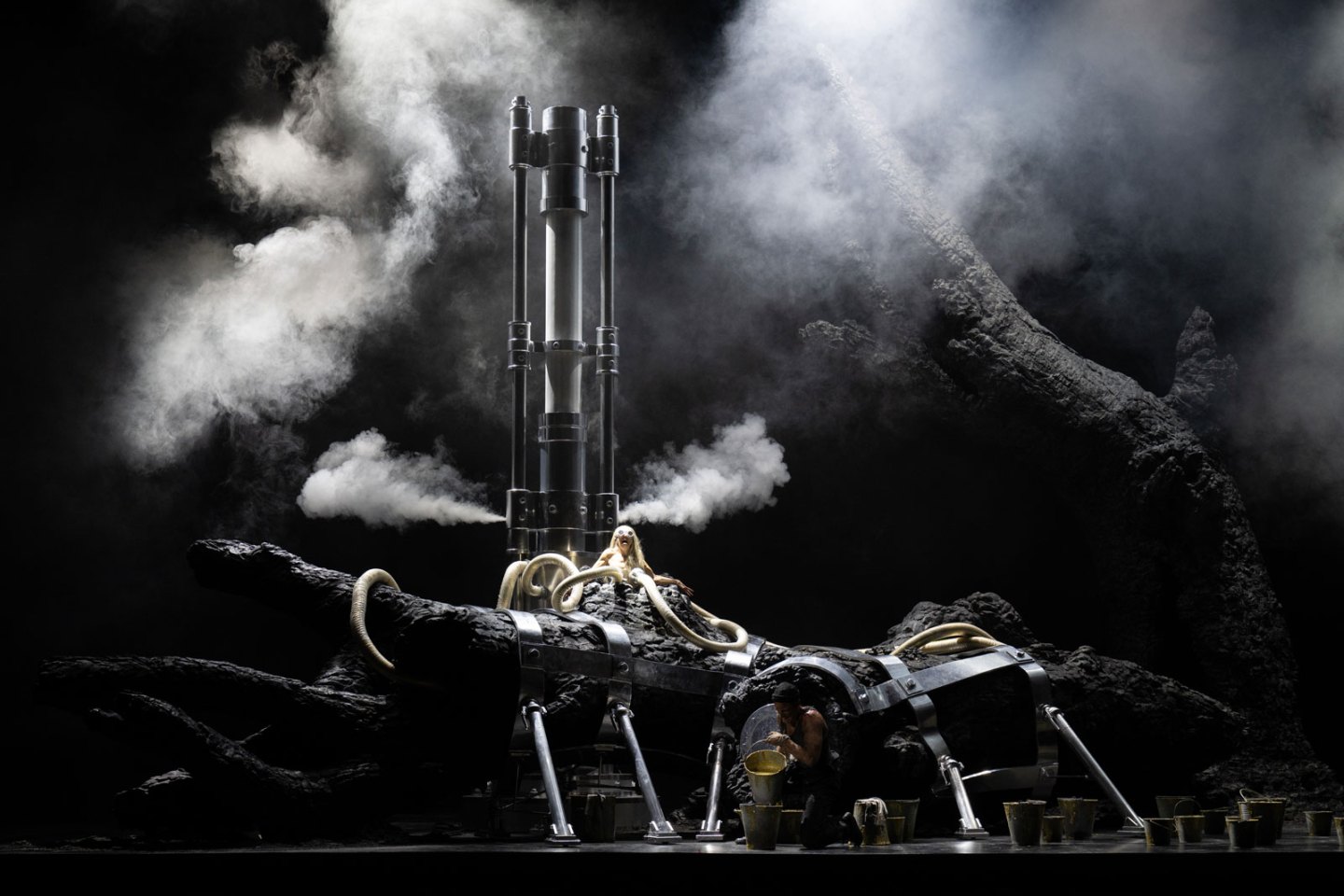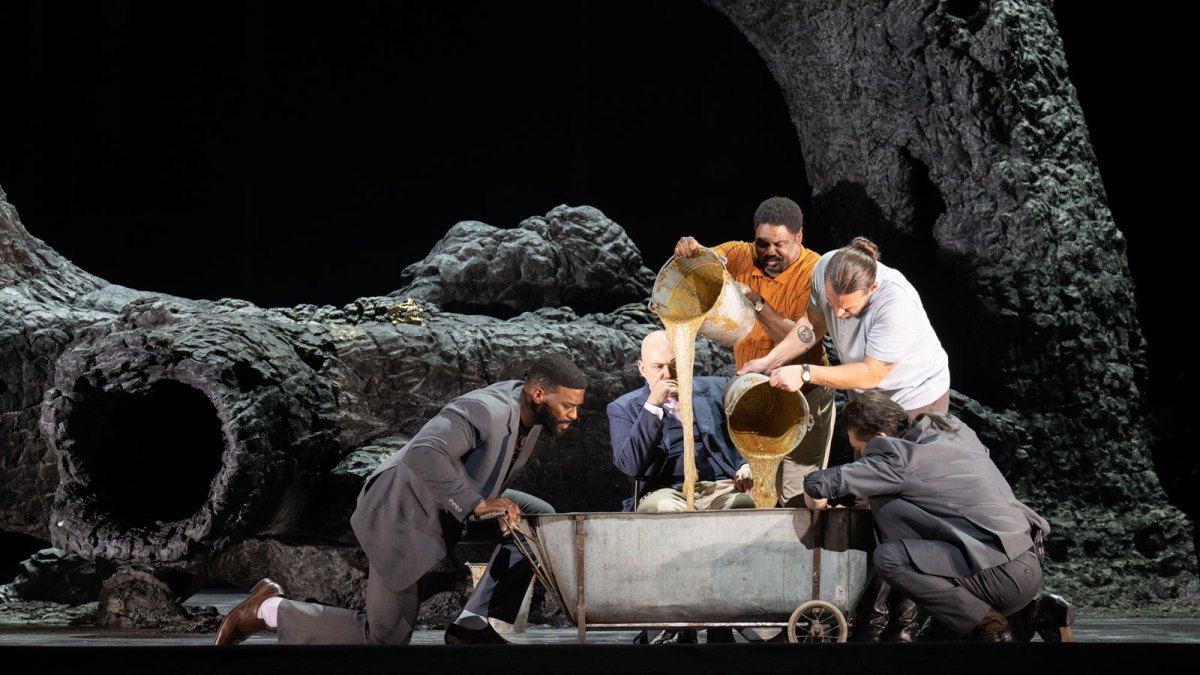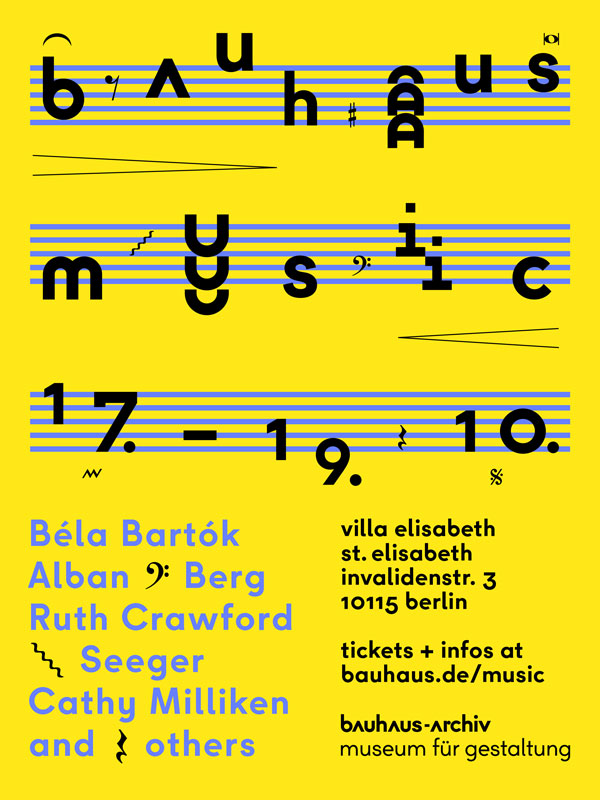In his program interview with theater writer A.J. Goldmann, Barrie Kosky described his new production of the Royal Opera House “Ring” cycle as “stripping opera back to the quintessential human condition,” taking inspiration from the distilled purity of Greek dramas over the expanse of Norse and Germanic myths. This spare, brutal, yet lubricious production sets some of Kosky’s key ideas in motion.
The major departure from convention extends a concept from the Kosky back catalog. Erda’s warning to Wotan plays a small but crucial part in the drama of “Das Rheingold”; this production builds the whole narrative around her character (billed as representation of the Earth Mother), borrowing an idea he introduced in his only previous “Ring,” at the Staatsoper Hannover. Before the famous prelude could begin, a naked, world-weary woman walked slowly into a silent post-destruction landscape, burying her head in her hands as the extent of the catastrophe that had befallen her Earth dawned on her. The mute Erda (played by octogenarian actor Rose Knox-Peebles) remained on stage the entire evening, mostly removed as if viewing a dream in the third-person, but sometimes involved: as a handservant for the Gods’ country picnic, or as the elemental life force that powers the mining machine in Nibelheim. A cycle “seen retrospectively from the dreamings of a destroyed world” (as Kosky puts it) seems to be the major dramatic arc of this “Ring.” Its parallels in the real world are clear enough, but it appears resolutely agenda-less, and first impressions suggest this particular allegory of eco-fatalism is a concept with legs.
The latest from VAN, delivered straight to your inbox
This is Kosky setting out his stall: we might expect variations on the giant charred World Ash Tree centerpiece, a connecting force between the Riesenheim, Rhine, and Nibelheim worlds (and with potent symbolic potential in later “Ring” chapters) in the rest of this cycle. Other ideas have shorter arcs. How to best depict the difference between the Gods and mere mortals: Are they untouchable, or simply out-of-touch? Here, Wotan and the family are a set of champagne-sipping polo players. (Later, Fafner bludgeons Fasolt to death with a mallet he finds lying around.) Sharper bursts of inspiration see the tarnhelm become a golden Bane mask, and a starkly stratified Nibelheim, with subterranean child workers dwarfed by the gold-laden buckets they’re forced to carry by their hapless line-manager Mime (the excellent Brenton Ryan), all the while overseen by a dominant, older Alberich (Christopher Purves).

In those buckets, Kosky opts for liquid gold that’s pumped remorselessly out of the natural heart of the barren world. (The Royal Opera House’s divestment from BP earlier this year came just in time for this production.) But this adds something fluid and carnal that flows between the hard outer shell of Kosky’s world. Characters smear, bathe in, even lick this gold; it’s a much more believable object of total obsession than, say, a gold bar.
There’s always some space for wit in “Das Rheingold,” and Sean Panikkar’s constantly cackling Loge managed to find it in the strangest of places. Marina Prudenskaya’s stuck-up Fricka and Christopher Maltman’s arrogant Wotan helped concoct an extremely familiar brand of upper-class obnoxiousness. And Kosky hasn’t completely shunned the cruder regions of his humor here, though it remains to be seen what is gained dramatically from seeing Alberich’s flaccid penis flop out in Act 1, as he’s humiliated by the Rheinmaidens (Katharina Konradi, Niamh O’Sullivan and Marvic Monreal).
Though there’s plenty of musical oomph from the Royal Opera House orchestra and Antonio Pappano (who begins the longest swansong imaginable as he slowly departs as Covent Garden musical director), I can’t escape from the suspicion that there isn’t quite enough financial oomph behind this “Ring.” “I have always believed you can do spectacular and you can do interesting, and it doesn’t have to be expensive,” Kosky told the Times last week. He’s outlined both the idea of this “Ring” being boiled down to its essential core, and that its aim was to bring in singers debuting in these roles (a move that paid off—it’s an extremely consistent standard of singing). I hope both choices are purely artistic, and not motivated by an economic climate that’s pretty dire for large-scale opera in the UK. It’s not a spectacular production, either in the purely visual sense, or in the bells-and-whistles excess of houses where funding is under less scrutiny. But, in sacrificing spectacle, Kosky’s “Das Rheingold” gains in every other department. ¶
Subscribers keep VAN running!
VAN is proud to be an independent classical music magazine thanks to our subscribers. For just over 10 cents a day, you can enjoy unlimited access to over 875 articles in our archives—and get new ones delivered straight to your inbox each week.
Not ready to commit to a full year?
You can test-drive VAN for one month for the price of a coffee.


